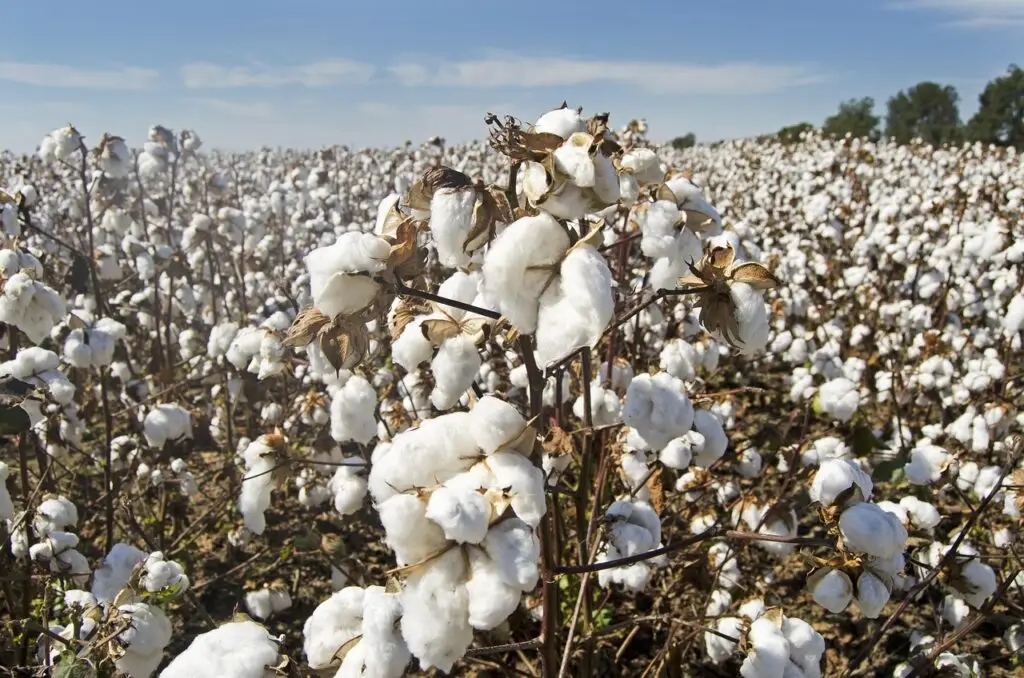India is one of the world’s leading producers of cotton. The credit for this not only goes to the farmers but also to our government and the great Indian scientists, thanks to whom a Genetically Modified crop like Bt Cotton received approval in India.
This approval was granted in 2002 by the Genetic Engineering Appraisal Committee (GEAC), which operates under the Ministry of Environment, Forest and Climate Change.
Bt Cotton is the only genetically modified crop that has been officially approved for production in India.
What is Bt Cotton?
Bt Cotton is a genetically modified crop that contains a gene from the bacterium Bacillus thuringiensis. This gene produces a protein that is deadly to insects and pests, especially the bollworm, which causes significant damage to our crops. This technology has reduced the need for chemical spraying on cotton crops and has also brought economic benefits to farmers. Although the cost of cultivating such crops has increased, the reduction in recurring expenses has offset it. This technology has proven to be a boon for cotton farmers.
Approval and Adoption in India
Bt cotton was officially approved for cultivation in India in 2002, following rigorous field trials and comprehensive biosafety assessments designed to evaluate its environmental impact and safety for consumers. This landmark decision represented a pivotal moment in the evolution of Indian agriculture and the biotechnology sector, signalling a new era of genetically modified organisms in farming.
Following its introduction to the market, Bt cotton experienced rapid adoption among farmers in Maharashtra, Punjab, Gujarat, and other major cotton-growing states, primarily due to its resistance to the bollworm and other harmful pests. It led to a reduction of chemicals in farmers’ fields and also increased crop production, which ultimately decreased farmers’ costs and helped enhance income from the same land. As a result, Bt cotton became the primary choice for all cotton farmers, enabling farms to achieve greater economic stability and productivity in their cotton farming practices.
Currently, more than 90% of the cotton grown in India is Bt cotton, highlighting its prominence and reliability among cotton farmers.

Impact of BT cotton on Indian Agriculture
1. Increased Yields:
Farmers experienced higher cotton yields due to effective control of bollworm pests.
2. Reduced Pesticide Use:
There has been a significant drop in the use of chemical pesticides, benefiting both the environment and farmers’ health.
3. Improved Profit Margins:
Lower input costs and better harvests have improved farmers’ income and reduced crop losses.
4. Controversies and Concerns:
Despite its success, Bt cotton has faced criticism over secondary pest outbreaks, seed monopolies, and environmental concerns. Nevertheless, scientific organisations assert that Bt cotton has undergone thorough biosafety assessments and is safe for cultivation.
Why No Other GM Crops Are Approved?
So far, trials have been successful in BT brinjal and mustard, although permission for their commercial production has not yet been received. There has been opposition from the people regarding this, and there are also bio-safety and regulatory challenges. Apart from this, cotton is a non-food crop which is not used for eating, so it has not been approved.
The Road Ahead
With the growing need for climate-resilient and pest-resistant crops, there is a strong case for revisiting India’s GM crop policies. More transparent regulations, increased awareness among farmers, and ongoing scientific evaluation can pave the way for the adoption of more genetically modified (GM) crops in the future, ultimately benefiting Indian agriculture.
Benefits of Bt Cotton for the Environment
The BT cotton crop is very safe and does not cause any harm to the human environment. The Bacillus thuringiensis (BT) gene has been inserted into it, which produces a protein that is harmful only to specific pests; apart from that, it does not cause harm to anyone else. This has been proved by scientists. It does not cause any harm to any human or animal. WHO, FAO, etc. have not found any evidence of toxicity for it.
This has not significantly benefited our environment. Due to its arrival, the use of pesticides has reduced considerably. This has had a positive impact on our environment.
When was Bt cotton approved in India?
Bt cotton was approved for commercial cultivation in India in 2002 by the Genetic Engineering Appraisal Committee (GEAC).
Is Bt cotton the only GM crop approved in India?
Yes, as of now, Bt cotton is the only genetically modified (GM) crop approved for commercial cultivation in India.
Is Bt cotton safe for the environment?
Bt cotton has helped reduce pesticide use, which is considered environmentally beneficial. However, its long-term ecological impact is still under study.
